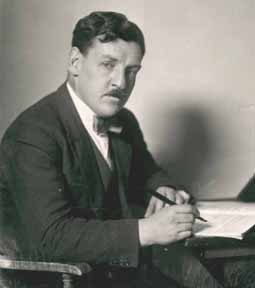The choir is back from its Summer Break
Ave verum corpus is traditionally a communion hymn written by Pope Innocent VI, set to music by many composers over the years.
Edward Elgar (1857-1937) was born in a village close to Worcester. His father had a music shop in Worcester and tuned pianos. Elgar was mostly self taught. His influence grew in the 1880's and 1890's despite his being a Roman Catholic in a largely Anglican community. In 1889 he married one of his pupils, Caroline Alice Roberts, against opposition from her family. She played a major part in his career development.
Elgar is one of the great English composers, who has left a legacy of great orchestral and choral works.

